Neil Young – After The Gold Rush (Vinyl) Japanese Pressing
Reprise Records (1971 / This Pressing 1976)
$95.00
Rare Second Japanese Pressing ~ Still In Top Condition! Heavy Grade Gatefold Cover Includes Japanese Insert, Plus Fold-Out Lyric Sheet / Poster Printed From Neil’s Hand Written Notes.
1 in stock
CompareProduct Description
Rare Second Japanese Pressing Of Classic Neil Young LP ~ Still In Great Condition! Heavy Grade Gatefold Cover Includes Japanese Insert, Plus Fold-Out Lyric Sheet / Poster Printed From Neil’s Hand Written Notes.
Originally Released In Japan In 1971. Second Pressing Identifiable By Price Printed On Back Cover: ¥2.500
Condition – Vinyl: EXCELLENT! Pure analog ~ sounding so wonderful!
Condition – Cover: EXCELLENT! So well preserved for over 47 years!
Japanese vinyl pressings are highly sought after by audiophiles and collectors, due to their premium sound quality and beautifully presented packaging. The sonic quality of Japanese records is regarded as the best in the world. No wonder all the original Mobile Fidelity Sound Lab records were pressed in Japan! The covers are printed on better quality heavy stock paper too. Top condition original Japanese pressings are becoming scarcer ~ and therefore more collectable and valuable every year.
Side 1:
Tell Me Why
After The Gold Rush
Only Love Can Break Your Heart
Southern Man
Till The Morning Comes
Side 2:
Oh Lonesome Me
Don’t Let It Bring You Down
Birds
When You Dance I Can Really Love
I Believe In You
Cripple Creek Ferry
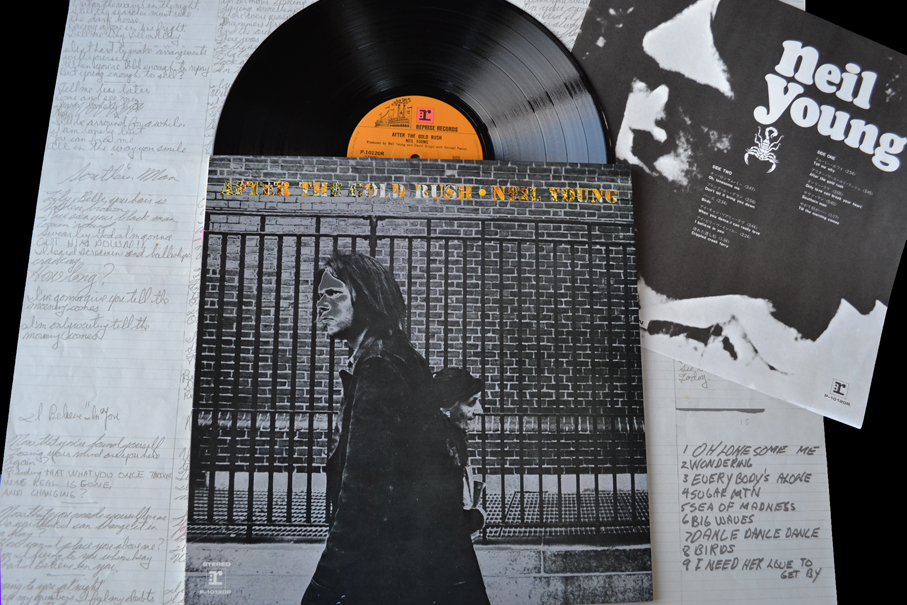


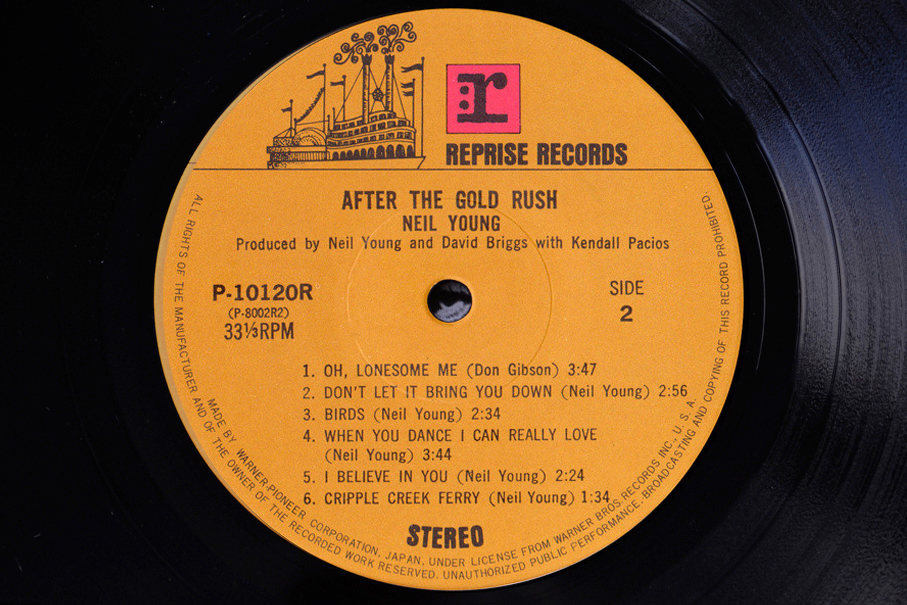
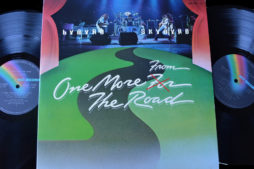

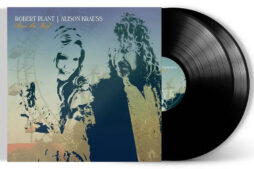
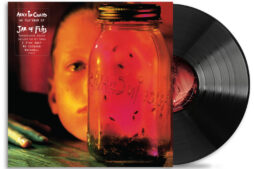

AMG –
A definitive singer/songwriter album, which has remained among Young’s major achievements. In the 15 months between the release of Everybody Knows This Is Nowhere and After the Gold Rush, Neil Young issued a series of recordings in different styles that could have prepared his listeners for the differences between the two LPs. His two compositions on the Crosby, Stills, Nash & Young album Déjà Vu, “Helpless” and “Country Girl,” returned him to the folk and country styles he had pursued before delving into the hard rock of Everybody Knows; two other singles, “Sugar Mountain” and “Oh, Lonesome Me,” also emphasized those roots. But “Ohio,” a CSNY single, rocked as hard as anything on the second album. After the Gold Rush was recorded with the aid of Nils Lofgren, a 17-year-old unknown whose piano was a major instrument, turning one of the few real rockers, “Southern Man” (which had unsparing protest lyrics typical of Phil Ochs), into a more stately effort than anything on the previous album and giving a classic tone to the title track, a mystical ballad that featured some of Young’s most imaginative lyrics and became one of his most memorable songs. But much of After the Gold Rush consisted of country-folk love songs, which consolidated the audience Young had earned through his tours and recordings with CSNY; its dark yet hopeful tone matched the tenor of the times in 1970, making it one of the definitive singer/songwriter albums, and it has remained among Young’s major achievements.